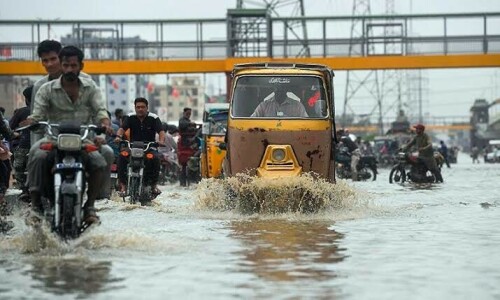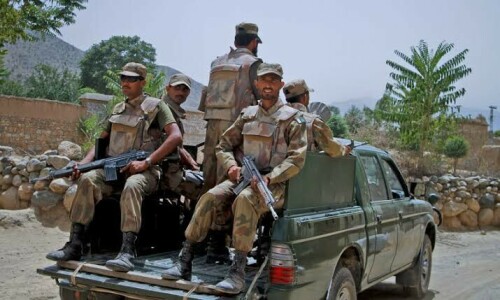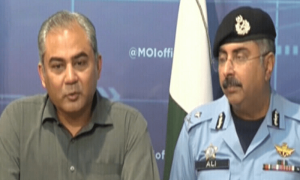PARIS, Sept 30: India, critically short of energy to fuel its booming economy, secured a new position in the world nuclear order on Tuesday when it signed a landmark atomic energy pact with France.
The deal effectively ended a ban on countries engaging in civilian nuclear trade with New Delhi, which was imposed in 1974 when India used its civilian programme to produce and successfully test an atomic bomb.
Indian Prime Minister Manmohan Singh, in Paris after a week-long trip to the US where he saw the House of Representatives back a US atomic pact with India, signed the deal with his counterpart Nicolas Sarkozy.
France, the world’s second producer of nuclear energy after the United States, hopes to lead a worldwide revival of the industry fuelled by worries about global warming and soaring energy prices.
India is now allowed to go shopping for technology and nuclear reactors after the 45-nation Nuclear Suppliers Group lifted its ban on New Delhi in early September after hard lobbying by Washington.
Singh and Sarkozy made no public comment after signing the nuclear deal, but a French presidential adviser noted that “today we are at the intergovernmental stage, and after that the industrialists will begin their cooperation”.
French nuclear giant Areva said on Monday it hoped to negotiate the delivery to India of two third-generation European Pressurised Reactors (EPRs), as well as nuclear fuel.
India, which currently has 22 nuclear reactors, is seeking to expand its nuclear energy sector, opening up a market estimated at 100 billion euros (142 billion dollars) over 15 years.
India was banned from nuclear trade after it built an atomic bomb that it hoped would give it military dominance over its neighbour Pakistan, which also went on to build its own bomb despite international protest.
Now New Delhi is a strategic partner for both the European Union and the United States and is seen as a relative haven of stability in an often volatile region, which includes Pakistan and Afghanistan.
India, a country of 1.1 billion people that many see as one of the future great powers of the 21st century, currently gets only a tiny fraction of its electricity from nuclear power.
Observers say that more nuclear plants in India could help reduce global demand for oil and gas worldwide, and proponents of nuclear energy say it will help the emerging economic giant fight pollution.
“The world needs India in its fight against global warming,” said Sarkozy on Monday at an EU-India summit.
He said he did not see how “India can fight global warming without nuclear energy, which is a clean energy. That would be totally incoherent.”
The US is also keen to tap into the Indian nuclear market.
—AFP









































Dear visitor, the comments section is undergoing an overhaul and will return soon.